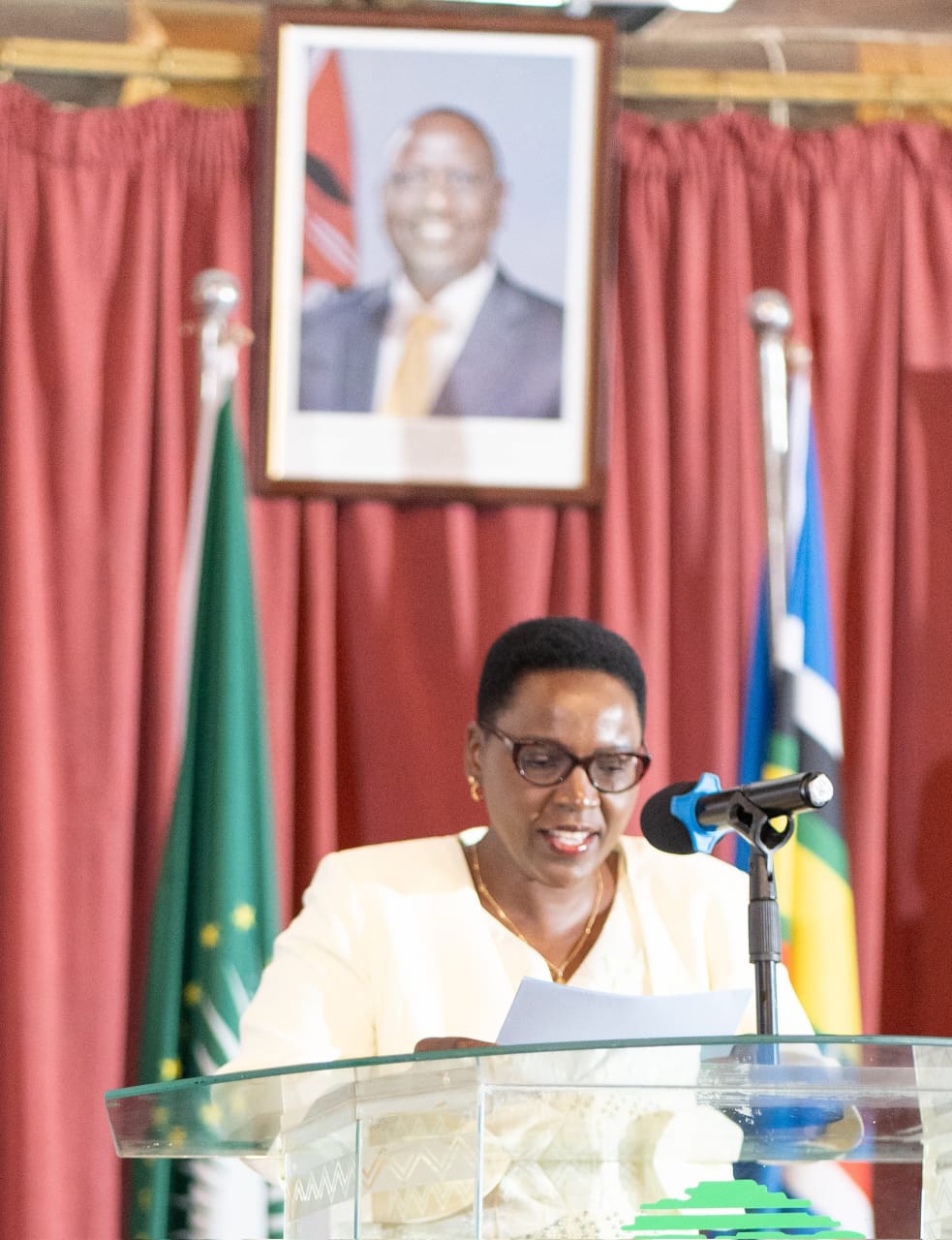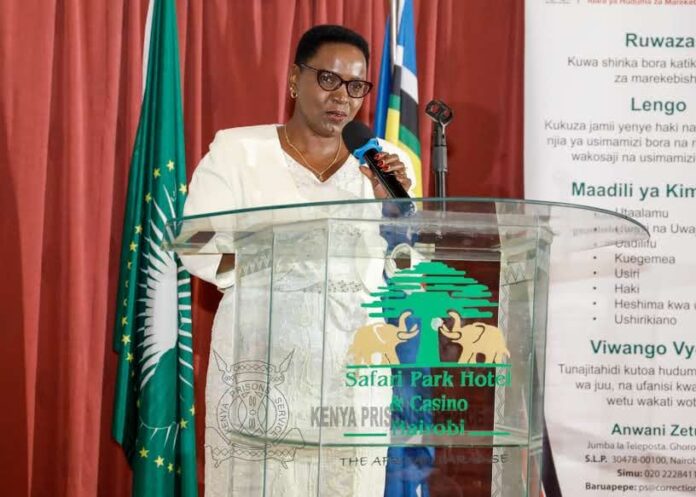By Mercy Kachenge
Nairobi, Kenya:In a groundbreaking event, Kenya hosted the inaugural African Conference on Health in Detentions Facilities. The conference, which drew hundreds of participants from across the continent, centered around the critical theme of “Mental Wellness for Effective Service Delivery.”
During the closing ceremony of the conference the Principal Secretary for Correctional Services, Dr. Salome Beacco said that Mental health remains a fundamental human right and therefore the needs for both inmates and staff in general should be prioritized.
Dr. Salome Beacco, a psychologist, emphasized the need for comprehensive well-being, encompassing not only the inmates but also the staff. This focus on the staff’s well-being is crucial as it directly impacts their ability to provide effective service and create a positive environment within the institution.
Speaking during the closing ceremony of the First African Conference on Health in Detentions, the Principal Secretary emphasized the importance of an integrated approach to healthcare within prisons. The aim is to address pervasive healthcare issues through improvements in general prison conditions and management, as well as incremental progress in overall prison conditions.

The PS acknowledged the longstanding relationship between the State Department and the International Committee of the Red Cross (ICRC), which has resulted in significant milestones towards improving the quality of healthcare for inmate staff and their families.
In a recent development, the Principal Secretary proudly announced the establishment of Magereza Hospital, a medical facility dedicated to providing healthcare services specifically for members of the State Department, especially those employed by the Kenya Prison Service. This remarkable achievement significantly enhances the detention facilities’ capacity to cater to the healthcare needs of its personnel, demonstrating the government’s commitment to prioritizing the well-being of its employees.
‘’Some of the collaborative activities and concrete strategies between ICRC and the State Department for correctional services include COVID-19 Response and Management in prisons. Additionally, the strengthened relationship between the State Department and Ministry of Health, will further bridge the previous gaps, capacity building integration of medical information and management systems in prisons’’ noted Dr. Salome.
Dr. Salome Beacco added that the collaboration of Kenya Prison Service (KPS) with ICRC led to development of a roadmap towards development of information system, which is a digitization platform for medical health data and information.This also include adoption of individual medical treatment, distribution of ICT hardware and medical devices, donation, distribution of pharmaceuticals, non-pharmaceutical and laboratory supplies. This success was profoundly evident during the COVID-19 response.
”The efforts were not only on the basis of the State Department and ICRC , but also other actors like the Ministry of Health (MOH) and Judiciary through the low case fatality rates of 0.29 percent with 9.2 percent positivity rates and high recovery rates of 79 percent were recorded during the COVID-19 outbreak.These remarkable statistics affirm that persons through good practice are able to provide prevention, care, treatment and support in managing communicable diseases among other emerging health issues.’’
The PS noted the key points highlighted by the Superintendent of Prisons of Ghana to be adopted from the conference includes upholding and strengthening the rule of law, including the Nelson Mandela rules, Bangkok rules, and Havana rules in the National Detention Facilities.
Additionally, she highlighted the outstanding success through commendable vaccine coverage where 88.9% and 94.5% of staff, families, and inmates respectively were reached. This relationship between Kenya Prison Service, ICRC, ministry of Health and other actors calls for continued strengthening of good people. Amid the dire global prison situation, United Nations entities jointly developed the United Nations System Common Position on Incarceration.
”This framework remains a core guideline toward achieving the international obligations on human rights, present conditions, and public health”
Advocacy for health care providers revolves around promoting ethical and efficient practices. It involves creating a secure environment free from coercion and pressure to act in violation of medical ethics. Additionally, this advocacy aims to ensure that provision of health care does not conflict with security procedures.














